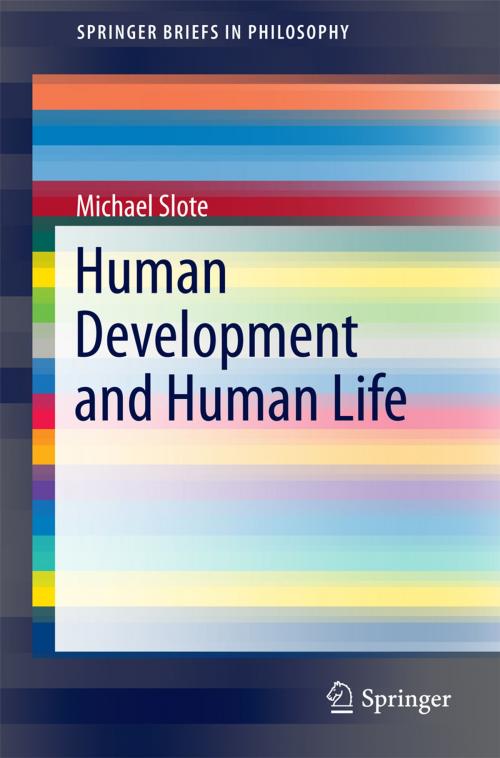Human Development and Human Life
Nonfiction, Health & Well Being, Psychology, Developmental Psychology, Religion & Spirituality, Philosophy| Author: | Michael Slote | ISBN: | 9783319340661 |
| Publisher: | Springer International Publishing | Publication: | June 14, 2016 |
| Imprint: | Springer | Language: | English |
| Author: | Michael Slote |
| ISBN: | 9783319340661 |
| Publisher: | Springer International Publishing |
| Publication: | June 14, 2016 |
| Imprint: | Springer |
| Language: | English |
This book begins with a discussion of the human life cycle and then uses that discussion and other ideas to paint a general picture of what human lives are like. While the first part looks at human development and change, the second part of the book explores what all human lives are like.
Philosophical ideas and methods are central to this book, although it is difficult to subcategorize it into any familiar subdiscipline of philosophy. It draws on modern concepts from psychology and social science in order to portray an image of human life and lives and to enable readers to easily understand the notion of human development in a very specific and directed way. Although cognitive development and the development of motor skills are two examples of forms of human development, this book homes in on a particular, and arguably more synoptic, way of seeing our development, which is in relation to and occurs within the human life cycle.
This book is an enlightening read for a broad range of philosophy scholars, articulating and defending a view that is neither as pessimistic nor as optimistic about human life as previous views have been.
This book begins with a discussion of the human life cycle and then uses that discussion and other ideas to paint a general picture of what human lives are like. While the first part looks at human development and change, the second part of the book explores what all human lives are like.
Philosophical ideas and methods are central to this book, although it is difficult to subcategorize it into any familiar subdiscipline of philosophy. It draws on modern concepts from psychology and social science in order to portray an image of human life and lives and to enable readers to easily understand the notion of human development in a very specific and directed way. Although cognitive development and the development of motor skills are two examples of forms of human development, this book homes in on a particular, and arguably more synoptic, way of seeing our development, which is in relation to and occurs within the human life cycle.
This book is an enlightening read for a broad range of philosophy scholars, articulating and defending a view that is neither as pessimistic nor as optimistic about human life as previous views have been.















